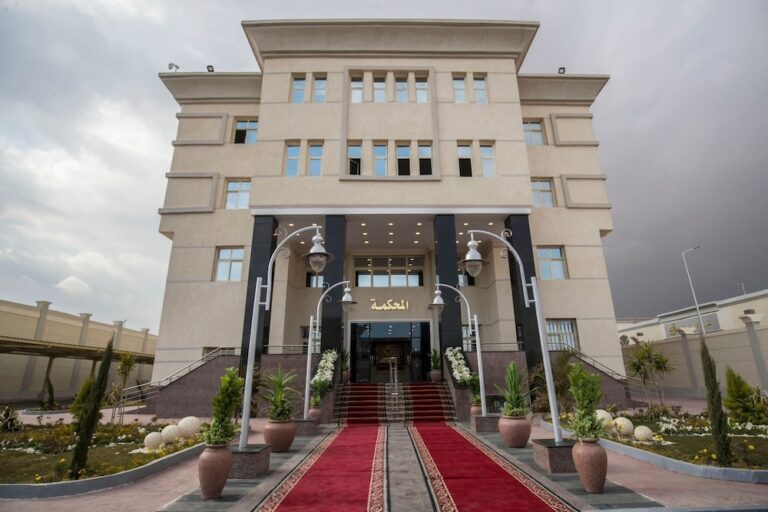Mohamad Sabry, a freelance journalist based in the eastern Sinai region of Egypt, was arrested on 4 January 2013 for his critical work and is due to be tried in a military court.
(RSF/IFEX) – 8 January 2013 – Reporters Without Borders is alarmed by the detention of Mohamed Sabry, a freelance journalist based in the eastern Sinai region, and calls for his immediate release.
Arrested on 4 January, he is due to be court martialled in what is the latest of series of disturbing media freedom violations.
Sabry’s wife said he was detained while filming in a military zone in Rafah for a report for Reuters about a decision by the armed forces to ban the purchase of land in the border area. Also a blogger and member of a human rights group that campaigns against the use of military courts to try civilians, Sabry was placed in detention without being able to talk to a lawyer and without his family being notified, and is scheduled to be tried before a military court tomorrow. GlobalPost Egypt correspondent Eric Cunningham, who has worked with Sabry, described him as an “independent, objective and a valuable source of information in a region that is little covered by the media.”
“We are very disturbed by the current situation in Egypt and the repeated violations of freedom of information in the past few weeks,” Reporters Without Borders said. “The authorities must accept criticism from journalists and other news providers or else the climate for the media will continue to worsen.” Reporters Without Borders added: “We urge the Egyptian authorities to stop harassing journalists and news media, and we firmly condemn the use of military courts to try journalists.”
Sabry’s arrest follows a series of complaints against Egyptian journalists and media, in response to which the public prosecutor’s office has started several judicial investigations despite President Mohamed Morsi’s pledge, shortly after his June 2012 election, that “no one will touch press freedom.”
One of the targets is Bassem Youssef, a well-known satirist and host of a show called El-Bernameg on CBC television that mocks politicians. After a complaint accused him of insulting President Mohamed Morsi, he is being formally investigated on a charge denigrating the head of state.
The president’s office has brought a complaint against the daily Al-Masri Al-Youm and one of its journalists, Yousri Al-Badri, accusing them of “spreading false news endangering public peace and security and affecting the presidency.” Doaa El-Adl, the newspaper’s cartoonist, is also being investigated because of a cartoon deemed to have offended religion.
And finally, the prosecutor-general’s office has just decided to investigate Abdel Halim Qandil, the editor of the weekly Sawt El-Umma (Voice of the Nation), on a charge of insulting President Morsi. An outspoken critic of the current government, he wrote a column last October that was headlined “Morsi, you are a liar.”
The targeting of journalists with complaints and judicial investigations comes at a time of great tension and even violence for Egyptian media, with the number of cases of harassment, death threats and physical attacks registered by Reporters Without Borders increasing steadily. Several news media offices in Cairo have been physically attacked, including the Al-Jazeera bureau on 21 November and the headquarters of the Egyptian daily Al-Wafd on 17 December, when a Salafist group bombarded it with stones and Molotov cocktails, injuring some of its journalists.
Newspaper reporter Al-Hosseini Abu Deif’s death must also not be forgotten. Deif died after being targeted by Morsi supporters and hit by a rubber bullet fired at close range while covering clashes outside the presidential palace in the early hours of 6 December.
Reporters Without Borders reiterates its call for an investigation into the circumstances of his death and for those responsible to be severely punished.


